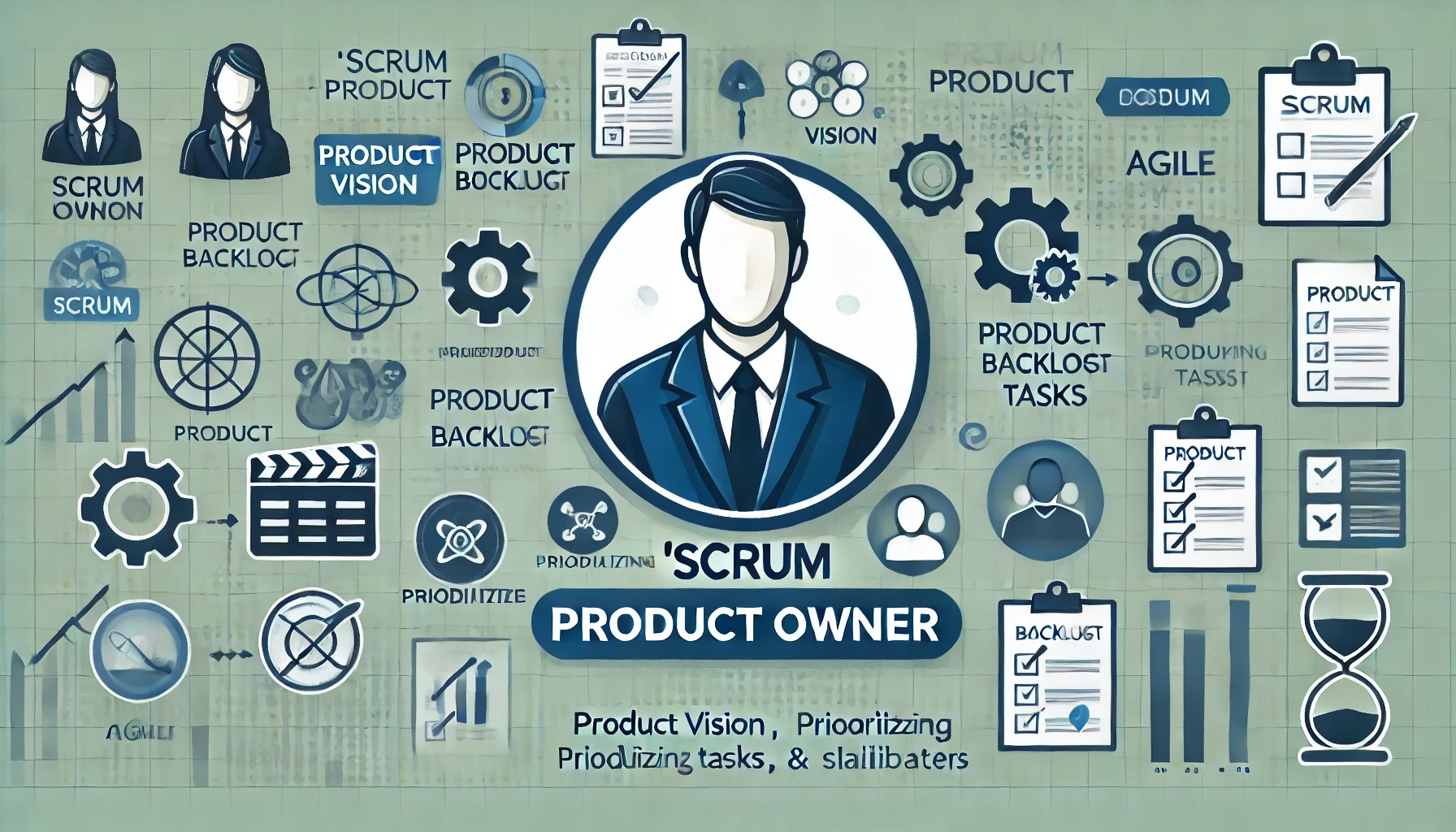Core Skills Scrum Product Owners Need to Excel in Agile Projects

In Agile project management, the Scrum Product Owner (PO) plays a crucial role in guiding the development team toward delivering high-value products. As a key figure in the Scrum team, a Product Owner is responsible for prioritizing work, bridging the communication gap between stakeholders and the development team, and ensuring that the product aligns with business goals. Here’s a closer look at the skills that make a Scrum Product Owner successful.
Effective Communication
Effective communication is a cornerstone skill for Product Owners (POs). POs serve as the main link between the stakeholders, including customers and users, and the development team. This role demands the ability to convey ideas, requirements, and feedback in clear, actionable terms that both parties understand. Excellent communication not only fosters alignment but also builds trust and transparency in the project, ensuring that the team is constantly working on the most valuable features.
Stakeholder Management
A successful Product Owner understands how to balance the needs and expectations of multiple stakeholders. Managing stakeholder relationships involves regular check-ins, active listening, and empathy, ensuring that stakeholder feedback is considered without disrupting the product vision. Great stakeholder management also means prioritizing competing interests in a way that serves the best interest of the project, often involving negotiation and conflict resolution skills.
Backlog Management and Prioritization
Backlog management is the heart of a Product Owner’s role. It requires organizing, refining, and prioritizing backlog items to keep the development team focused on high-impact work. Prioritization techniques such as MoSCoW (Must have, Should have, Could have, and Won't have), Kano model, or Weighted Shortest Job First (WSJF) help POs make decisions aligning the product with short-term needs and long-term goals. An effectively managed backlog ensures that the team is always progressing towards delivering valuable outcomes.
Analytical and Decision-Making Skills
Analytical skills enable a Product Owner to assess customer feedback, product data, and business trends to make informed decisions. A PO must also make quick, sound decisions when it comes to prioritizing features or responding to change. Whether it’s deciding on trade-offs or interpreting user data, analytical skills are essential for maintaining a product roadmap that is both strategic and responsive to new information.
Understanding of Agile and Scrum Principles
Product Owners should have a solid understanding of Agile methodologies and Scrum practices. Knowing the principles of iterative development, continuous improvement, and self-organizing teams empowers a Product Owner to act in alignment with Agile values. This knowledge enables the PO to support team processes effectively and encourage collaboration, helping the team stay true to Scrum principles and ultimately increasing the likelihood of project success.
Customer-Centric Mindset
A customer-focused Product Owner seeks to understand user needs deeply, aiming to deliver a product that resonates with its intended audience. This mindset involves continually gathering customer feedback, whether through user interviews, surveys, or beta testing. The PO can then incorporate this feedback into product iterations, ensuring that customer satisfaction remains at the forefront of the development process.
Technical Understanding
Although a Product Owner doesn’t need to be a developer, a technical understanding of the product and industry is invaluable. This knowledge enables the PO to communicate with the development team more effectively and make realistic decisions about what is feasible within technical constraints. A technical background or familiarity with the product’s core technology helps in bridging the gap between business requirements and technical execution.
Adaptability and Flexibility
In Agile projects, requirements can change quickly, often in response to market shifts or customer feedback. A successful Product Owner is adaptable and open to these changes, recalibrating priorities as necessary. This flexibility allows the PO to embrace new information, adjust the product direction when required, and keep the development process on track without becoming overly attached to a rigid plan.
Vision and Strategic Thinking
Product Owners are visionaries who define the product’s trajectory based on both market needs and business goals. Strategic thinking allows them to set a clear roadmap and ensure that each increment brings the product closer to its end goal. By aligning the team’s work with the larger picture, the PO enables the team to make progress with purpose, ultimately delivering a product that fulfills the company’s vision and objectives.
Conclusion
Being a Scrum Product Owner is a multifaceted role that requires a combination of soft and hard skills. From managing stakeholders and prioritizing the backlog to embracing a customer-centric mindset, these skills ensure that Product Owners can guide Agile teams effectively. With these competencies, a Scrum Product Owner can act as a linchpin in Agile projects, helping teams deliver products that are functional and aligned with business objectives and user needs. For professionals looking to advance in Agile project management, cultivating these skills can open the door to a fulfilling and impactful career.
Note: IndiBlogHub features both user-submitted and editorial content. We do not verify third-party contributions. Read our Disclaimer and Privacy Policyfor details.







